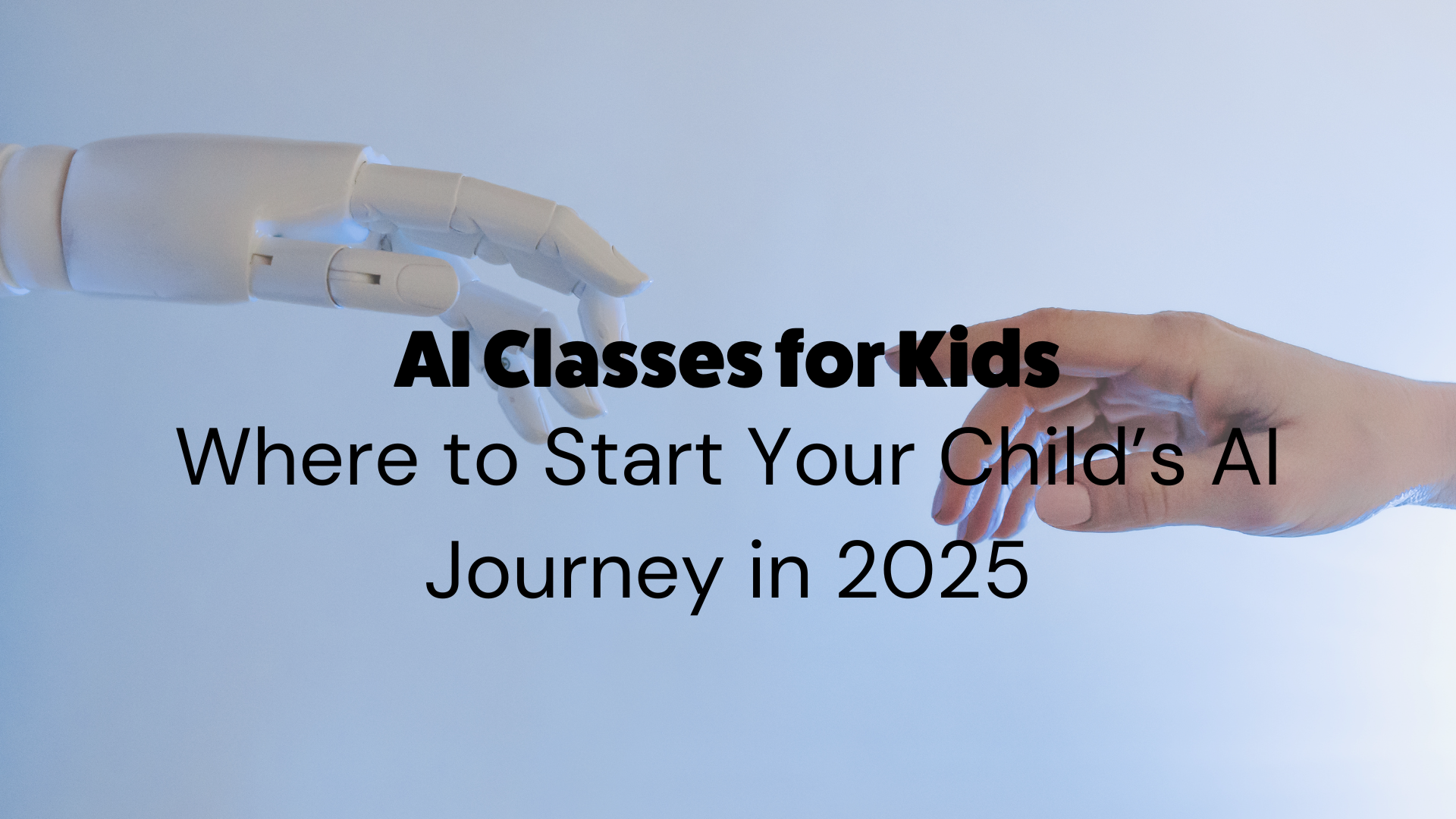AI Classes for Kids: Where to Start Your Child’s AI Journey in 2025
Introduction
In today’s tech-driven world, Artificial Intelligence (AI) is no longer just for adults—it’s for kids too! AI classes for kids are becoming increasingly popular as parents and educators recognize the importance of preparing the next generation for a future dominated by technology. These classes not only teach children how AI works but also help them develop critical thinking, creativity, and problem-solving skills. In this blog, we’ve compiled a list of the best AI classes for kids in 2025, so you can find the perfect program to inspire your young innovator.
Why Should Kids Learn AI?
AI is transforming industries, from healthcare to entertainment, and understanding it is becoming a essential skill. Here’s why kids should start learning AI early:
Future-Proof Skills: AI is shaping the future job market, and early exposure gives kids a head start.
Critical Thinking: AI classes teach kids how to analyze problems and develop solutions.
Creativity: Kids learn to create AI-powered projects, from games to chatbots.
Fun and Engaging: Many AI classes use interactive tools and games to make learning enjoyable.
Top AI Classes for Kids in 2025
Here’s a list of the best AI classes for kids, tailored to different age groups and skill levels:
Code.org AI for Kids
Age Group: 8-14 years
Format: Online (self-paced)
Price: Free
USP: Beginner-friendly, uses fun activities and games to teach AI basics.
Create & Learn AI Explorers
Age Group: 9-12 years
Format: Online (live classes)
Price: $25 per session
USP: Hands-on projects, small class sizes, and expert instructors.
Tynker AI Courses
Age Group: 7-13 years
Format: Online (self-paced or live classes)
Price: $20/month (subscription)
USP: Focuses on coding and AI through interactive lessons and games.
iD Tech AI Camp for Kids
Age Group: 10-17 years
Format: Online and in-person
Price: $1,099 per week
USP: Offers immersive AI projects and access to cutting-edge tools.
AI World School
Age Group: 7-18 years
Format: Online (self-paced)
Price: $99 per course
USP: Affordable, project-based learning with a focus on real-world applications.
RoboGarden AI for Kids
Age Group: 8-14 years
Format: Online (self-paced)
Price: $10/month
USP: Gamified learning platform that makes AI fun and accessible.
Kodeclik AI Classes
Age Group: 6-18 years
Format: Online (live classes)
Price: $299 per course
USP: Personalized feedback, small group sessions, and hands-on projects.
How to Choose the Right AI Class for Your Child
With so many options available, here are some tips to help you pick the best AI class for your child:
Age-Appropriate Content: Ensure the class matches your child’s age and skill level.
Interactive Learning: Look for classes that use games, projects, and hands-on activities to keep kids engaged.
Instructor Quality: Check the qualifications of the instructors and read reviews from other parents.
Cost and Flexibility: Consider your budget and whether the class offers flexible scheduling.
Conclusion
AI classes for kids are more than just a trend—they’re an investment in your child’s future. By enrolling your child in an AI class, you’re giving them the tools to think critically, solve problems, and innovate in a world increasingly shaped by technology. Explore the options above and start your child’s AI journey today!
About Inspirit AI
AI Scholars Live Online is a 10-session (25-hour) program that exposes high school students to fundamental AI concepts and guides them to build a socially impactful project. Taught by our team of graduate students from Stanford, MIT, and more, students receive a personalized learning experience in small groups with a student-teacher ratio of 5:1.


